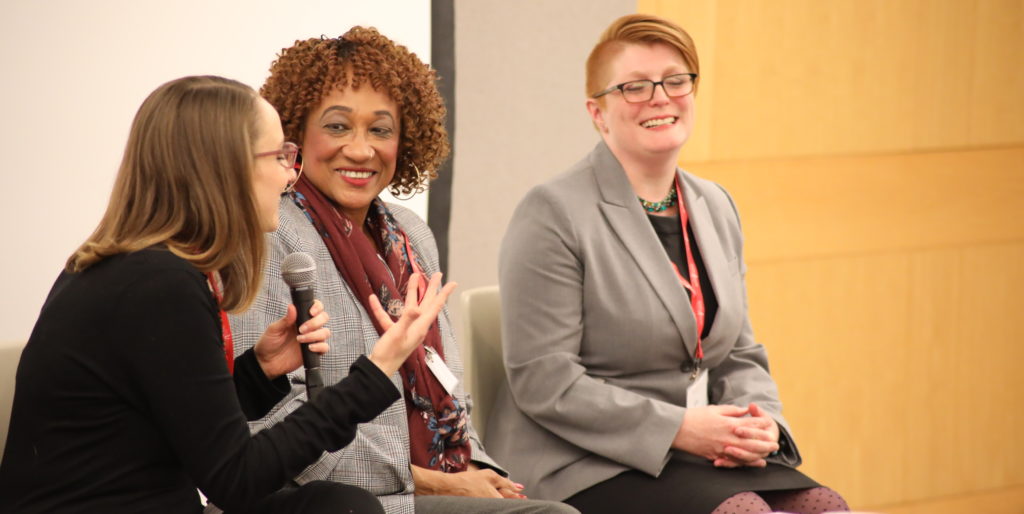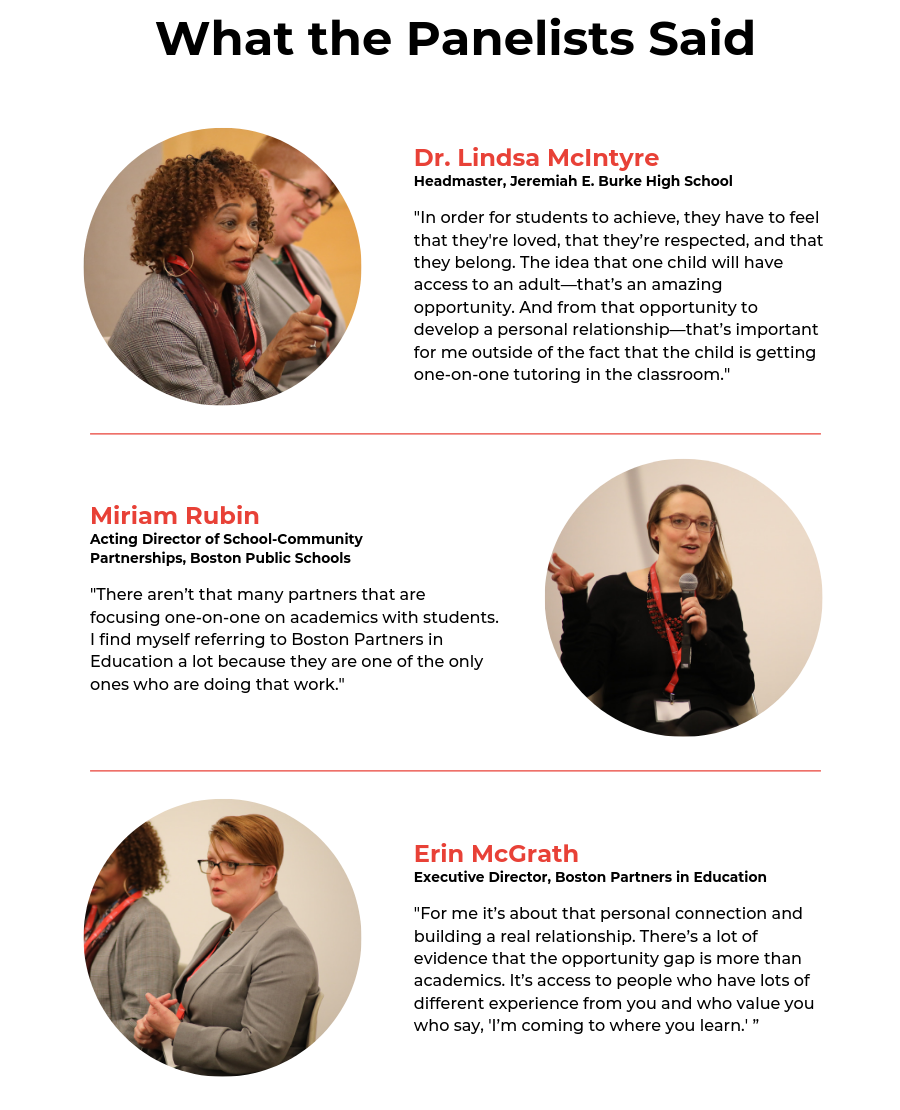
Last week, we were proud to partner with Northeastern ACES to bring together a panel of insiders from the Boston Public Schools (BPS) to discuss the history of the opportunity gap within our city’s public school system. Our panel of experts included Miriam Rubin, Acting Director of School-Community Partnerships at BPS; Dr. Lindsa McIntyre, Headmaster at the Jeremiah E. Burke High School; and Erin McGrath, Executive Director of Boston Partners in Education.
Ms. Rubin kicked off the event with a presentation on the BPS Opportunity Index, highlighting the district’s recent shift towards empowering schools to access the community partners that will best help them address opportunity gaps: “Schools are unique, and students are unique, and we have to really focus on their ability to make that decision themselves, and build their capacity to do that.” You can find more information on the Opportunity Index here.
The panelists’ discussion also addressed the factors that contribute to these gaps for students, and how Boston Partners is part of the solution. “The opportunity gap is not just related to teaching and learning,” said Dr. McIntyre. “It is related to economic inequality; it is related to trauma in the community; and it is related to race.”
How exactly does Boston Partners’ work transcend such significant factors? “Mentoring is integrated. It’s not an add on, it’s not a plus one,” Dr. McIntyre continued. “Just being in the classroom environment makes the student see this as part of their opportunity to achieve. That’s important that mentors are in the classroom; it’s real time. It’s not making the student feel less than—it makes them feel special.”
We’re grateful to our three panelists for bringing this important discussion to our mentor community, and we’re proud to play a role in closing opportunity gaps for students here in Boston. Hear more from our panel of experts below.

